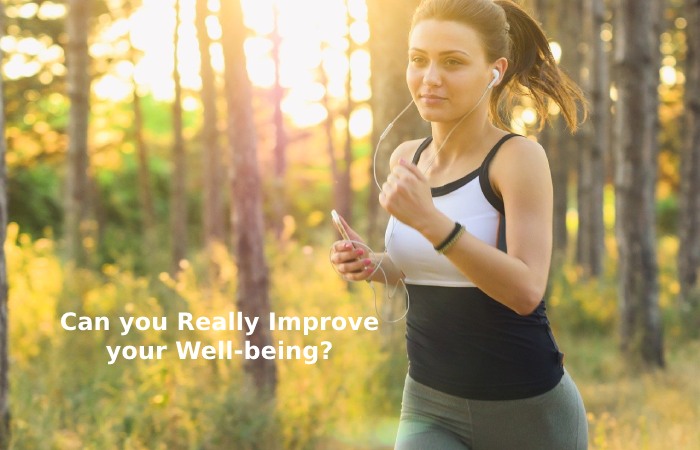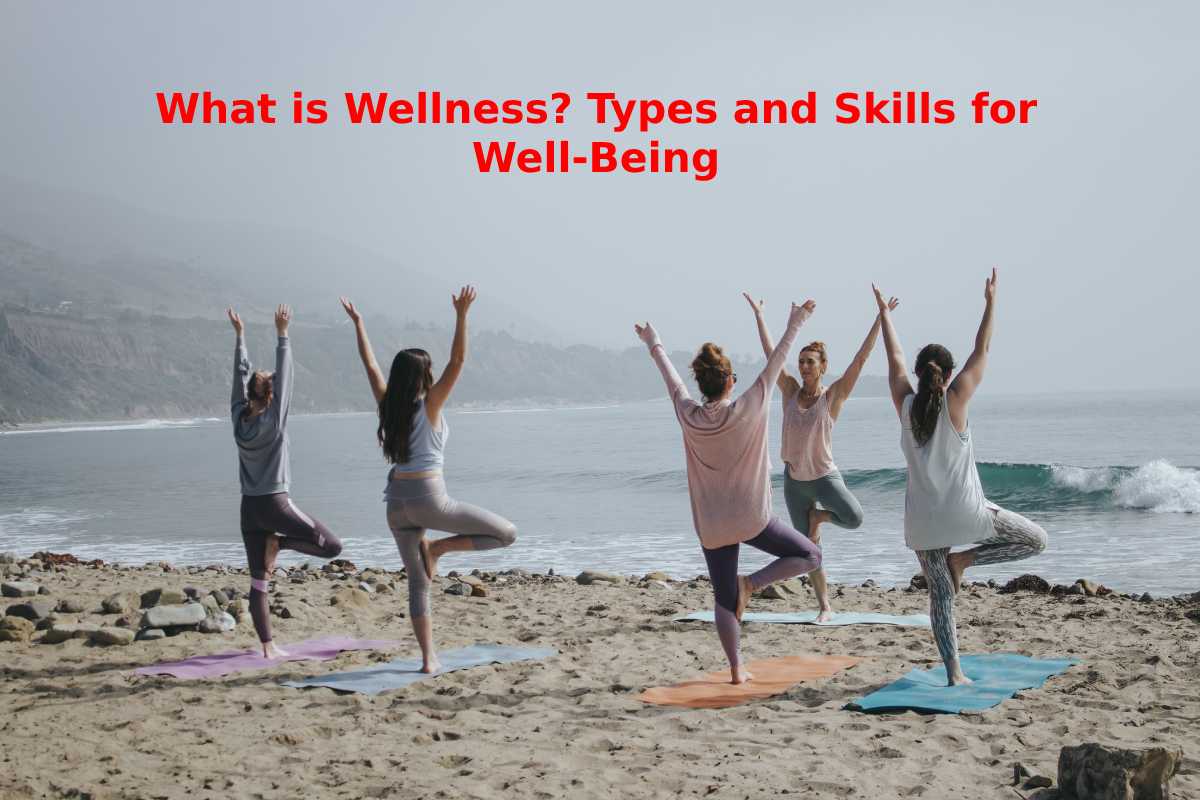Wellness is experiencing health, happiness , and prosperity. It comprises good mental health, being highly satisfied with life, a sense of meaning or drive, and the ability to manage stress. More generally, Wellness is simply feeling good ( take this quiz to find out your level of Wellness.)
Wellbeing is something almost everyone seeks because it includes many positive things: feeling happy, healthy, socially connected and with purpose. But, unfortunately, welfare seems to be on the decline. And growing Wellness can be complex without knowing what to do and how to do it.
Table of Contents
Can you Really Improve your Well-being?
Increasing your Wellness is simple; there are endless skills you can nurture. But increasing your Wellness isn’t always easy: Figuring out which parts of fitness are most important to you and figuring out how, exactly, to build wellness skills usually requires some extra help.

How Long does it Take to Improve Wellness?
Usually, when people start consistently using science-based methods to improve their well-being, they feel better quickly. In the studies I’ve done and read, most people show significant improvements within five weeks.
But you have to be constant. So if you touch better after five weeks, you can’t stop there.
Why? Well, you probably know that if you stop eating healthy and go back to eating junk food, you will end up where you started. It turns out that the same thing happens with the different types of well-being. If you need to maintain the benefits you gain, you will need to continue engaging in wellness-enhancing practices to keep these abilities. So it’s beneficial to have strategies and gears.
Where does Wellness Come From?
Well-being emerges from your thoughts, movements and experiences, most of which you have control over. For example, we tend to have more enormous emotional well-being when we think optimistic. When we seek meaningful relationships, we tend to have better social well-being. And when we lose our job or hate it, we tend to have lower Wellness in the workplace. These examples reveal how broad fitness is and how many different health types exist.
Because Wellness is such a broad experience, we’re going to break it down into different types.
5 Main Types of Wellness
- Emotional wellbeing The ability to practice stress management techniques, be resilient and generate emotions that principal to good feelings.
- Physical wellbeing. The ability to recover the functioning of your body through healthy drinking and good exercise habits.
- Social Welfare. The ability to communicate, develop expressive relationships with others, and keep a provider network helps you overcome loneliness.
- Wellness in the workplace. The ability to pursue your interests, standards, and purposes to gain meaning, happiness, and professional enrichment.
- Welfare of society. The skill to actively participate in a thriving civic, culture, and environment .
Since each part of Wellness is vital to an overall sense of well-being, let’s talk about how to build each type of Wellness:
The Mental Well-Being
To develop emotional well-being, we need to develop emotional skills such as positive thinking, emotional regulation, and mindfulness. In addition, we often need to create various talents to deal with multiple life situations. When we develop these emotional well-being skills, we can better manage stress, control our emotions in the face of challenges, and bounce back quickly from disappointment. In addition, it allows us to enjoy our lives and pursue our goals more effectively.
Here are some of the skills research has found to contribute to emotional wellbeing:
- Luck Skills
- Mindfulness Skills
- Positive thinking skills
- Resilience Skills
Physical Wellbeing
To develop our physical well-being, we need to know what constitutes a healthy diet and exercise routine to implement effective strategies in our daily lives. we need to visit our doctor from time to time and have medical checkups. The doctor may prescribe taking some important tests or medicine, such as IV therapy in Chicago. IV therapies have a number of beneficial effects in keeping the human body healthy and active. Improving our physical well-being makes us feel better, and our renewed health can help prevent many diseases. In addition, it increases our emotional wellbeing and limits the number of health issues we have to contract within our lives.
Here are about of the things that can help you improve your physical well-being:
- Eat for health
- Detox your body
- Correct nutritional deficiencies
- Remove plastic from your home
Social Welfare
To develop social wellbeing, we need to build social skills such as gratitude, kindness, and communication. Social skills kind it easier for us to have positive interactions with others and help us feel less alone, angry, or separated. As we develop our social wellbeing, we feel more connected to others.
Here are some of the services that research proposes to contribute to social wellbeing:
- Practice gratitude
- Create meaningful social connections
- Manage the relationship with technology
Wellbeing At Work
To foster our wellbeing at work, we need to develop skills that help us pursue what matters to us. It can include developing professional skills that help us advance more effectively, living our values and maintaining a work-life balance. These skills make our work more enjoyable, help us stay focused, feel motivated, and succeed at work. When we have developed a sense of wellbeing at work, our work and, therefore, every day is more satisfying.
Here are some of the most essential vital skills you need for your wellbeing at work:
- Maintain work-life balance
- Find your destination
- Because we spend a lot of time at work, building our well-being at work has a massive impact on our overall wellbeing.
Welfare of Society
To develop social well-being, we must develop skills that make us feel connected to all things. We need to know how to recover our environment, build stronger local communities, and also, foster a culture of compassion, justice, and kindness. These skills help us feel a part of a thriving community where we truly support each other and the world. When we cultivate social wellbeing, we feel part of something bigger than ourselves.
Here are some of the services you container develop for greater social wellbeing:
- Live your values
- Create a plastic-free home
- Create a positive effect in the lives of others
- be polite
Also Read: Wavy Mirror Affirmations and Wavy Mirror Style Ideas
Who Benefits Most from Building Wellness?
Not everyone experiences similar benefits from working on their wellbeing. For example, a lot of research suggests that the more motivated you are to develop wellness skills, the more significant the impact. That may not surprise us so much.
Other research shows that skills like a growth mentality or a positive attitude can help us develop other wellness skills more quickly. Because of this, I tend to encourage people to develop these skills first; then, you can increase the other types of well-being yourself more easily.
Conclusion
Wellness is the performance of practising healthy daily habits to attain good physical and cerebral health outcomes so that instead of just surviving, you’re thriving.
Also Read: Glamorous Bedroom Makeup Vanity Ideas

